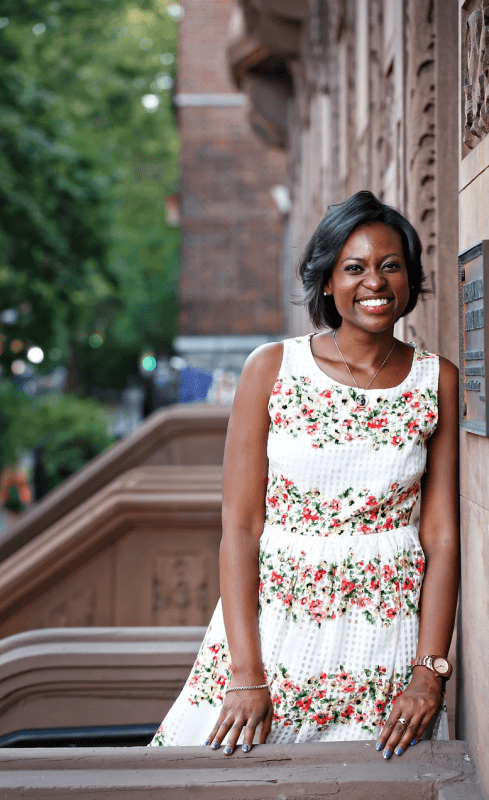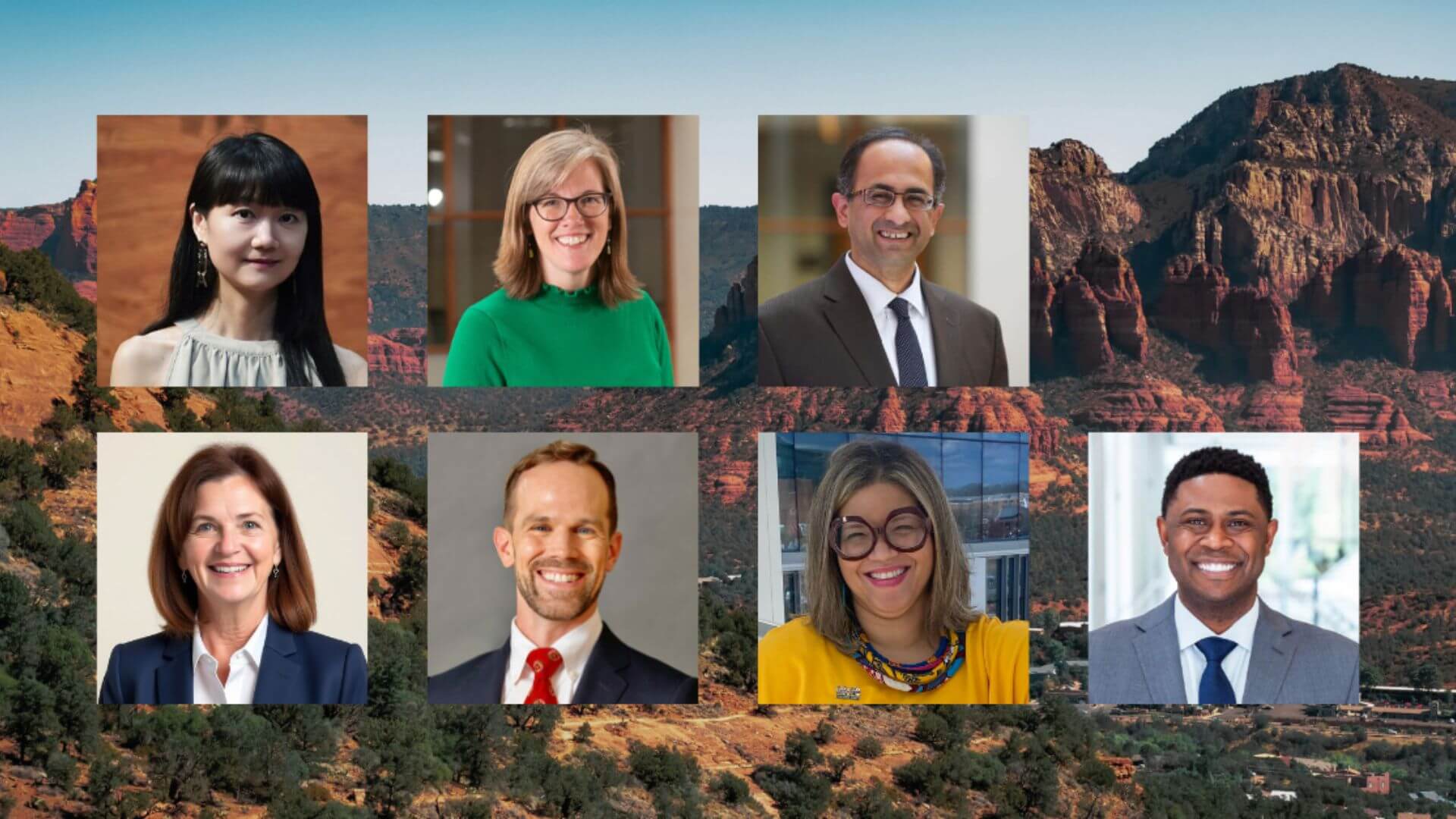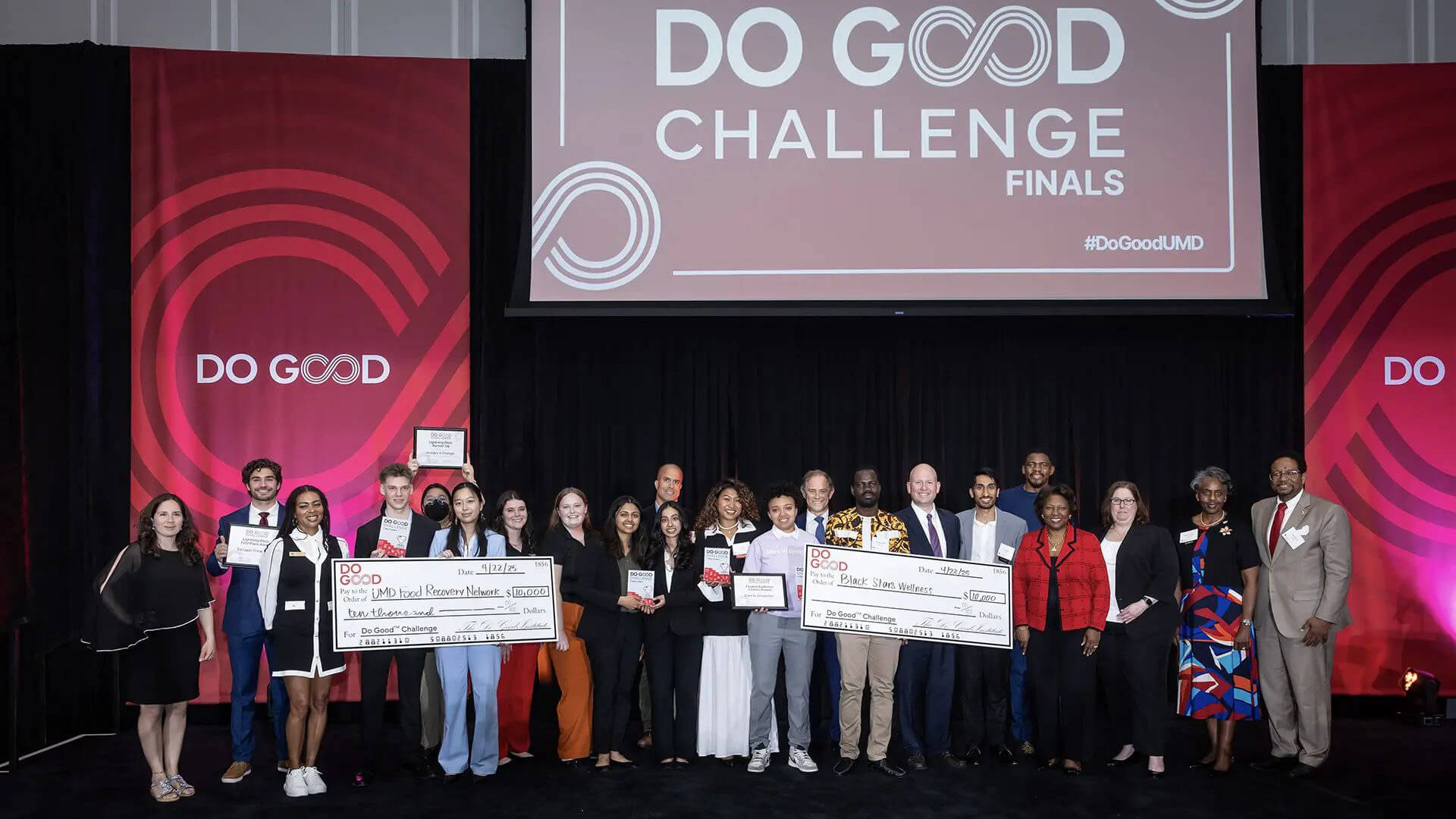
Ebonie Johnson Cooper is an Associate Clinical Professor in the University of Maryland School of Public Policy; she began teaching at UMD in 2020 as an adjunct professor. Ebonie is a trusted consultant and social entrepreneur who seeks to educate nonprofit professionals on Black philanthropy. She is the Principal of Friends of Ebonie, LLC, and Executive Director + Founder of the Young, Black & Giving Back Institute (YBGB). This interview was conducted and the recap written by Sarah Natchipolsky '22, communications intern at the Do Good Institute.
You were recently named Associate Clinical Professor in the University of Maryland School of Public Policy. One of the courses you teach is Nonprofit Fundraising (PLCY689Y) in the Graduate Certificate program. You say that you teach through the lens of Black identity, how is this reflected in your course content?
I'm always intentional in making sure that I'm introducing my students to what would be considered non-traditional giving. That could include giving circles, or helping them understand Black philanthropy and how it's very community oriented, oftentimes through a faith lens. That means recognizing that oftentimes, giving through communities of color—not just Black communities—is often untracked, if you will, from a traditional standard. So whether it's giving to strangers or supporting and getting students to college, it's not measured in the same way, even if it's through a Black sorority or fraternity for example. All of the philanthropic things that happen throughout our communities I make sure to uplift in class so that we aren't just looking through a traditional, white male, wealthy lens, as we often see philanthropy presented.
What are the top takeaways or lessons you hope every student leaves your Nonprofit Fundraising class with?
Everybody can be a fundraiser, and in fact we all are fundraisers by virtue of being affiliated with our organizations. No matter what position or role that you have, we're all fundraising, because fundraising starts with relationships. People give to people … and so I think that it's important that we manage those relationships well, and know that at the end of the day, giving is relationship-based.
Through the Young, Black, & Giving Back Institute and elsewhere, you’ve worked to tap into and empower Black philanthropists. What are some of the main things you want nonprofit leaders and your students to know about working with and engaging Black donors?
Quite frankly, when you get to the ask, it's not much different than a traditional donor, right? It's still relationship-based. But I think what is important to know are the things and the causes that we care about differently from other groups. We're thinking about education, we're thinking about mentoring, we're thinking about youth, Black women and girls, all of those things matter for us in different ways. So, I think the ask is probably similar, like we're taking away some of those same asking practices. But, we need to be very clear about the things that we're asking someone to give or invest in; those have to be things that are inextricably connected to our community and the greater cause for Black folks. That's going to be what matters the most to us, largely.
One of your specializations is fundraising amongst millennials. What is unique about millennials' approach to philanthropy?
I would say transparency is key for us. The ask is important, but we want receipts. We're looking to see how far the organization is reaching, the actual work. You just can't ask arbitrarily for a $100 donation. I want to know what it's going to precisely, how it's helping directly with your mission. What stories are being told by your program recipients or grantees? We're very deeply connected to a relevant present-day activity. Is what you're doing connected back to a relevant present-day movement? I think that makes a difference with millennials, we want to see how the impact is being made.
The Young, Black, & Giving Back Institute recently released its survey research: “Young Black and Working From Home,” which found that working from home negatively impacted Black nonprofit workers’ mental health. Could you talk about what some of the implications of this research are for Black nonprofit professionals?
What we found in that research is that while working from home during a pandemic and racial reckoning gave some sort of relief, it also was filled with anxiety and stress. That had to do with the racial inequities that exist with some organizations. We found that participants in the survey saw that working from home on one hand was a good thing, but on the other hand, it was all super stressful. Many were working more than 40 hours a week, because you're not working from home, you're at home working. Finding outlets and ways for self care is one of the outcomes that we found was really important so that you aren't lost in the element of work all day, all the time.
And what do you think these findings mean for the nonprofit sector as a whole?
I think that it means organizations paying more attention to their employees, recognizing that there's a sensitivity particularly for their employees of color, particularly Black employees, that when we come to work, we're not just coming to work with work, we're coming to work with our community burdens. We would bring them into the door and not be able to talk about them or even expect that someone in our office would even recognize them. But now, it's having the space to share or the fact that my employer understands that within the Black community, the walls are burning, Black bodies are being murdered, and that trauma that comes with it.
I think acknowledging it and recognizing it and creating mental health days for your Black employees. Or maybe it's a racial awareness day? I think for white employees it could be transformational or pivotal to sit with a racial reckoning that's happening … And I think that employers, particularly in the nonprofit sector, could take a step back and recognize that the burden we carry is every day. What almost feels like every week, a new name of a Black body has been killed, traumatized, and we're seeing this over and over again. How profound would that be, to allow us a mental health day, a day for Black employees to come together, mourn, listen, grieve, whatever that might be? And that happening with the space that our employer is providing, and not necessarily us finding it in another place.
I think the role of a nonprofit employer and employee could be transformational, to sit in that space to allow those opportunities to happen in a way that's safe for employees and employers of color and restorative for both groups, Black and white, or Black and those of color. I think that could be very helpful from a mental health space, particularly as we work from home and balance multiple traumas that are happening at once.
What are some upcoming events, programs or efforts that YBGB Institute is working on that you’d like people to know about?
We have just been awarded a Nielsen Foundation Data For Good grant. We'll be working under that grant umbrella through June 2023 to do research around Black-led, Black-benefiting nonprofits to find out their capacity needs. We'll be releasing a report at the end of this research to find out how the greater nonprofit sector can support these nonprofits, as well as creating tools that they can use for themselves to help strengthen their capacity needs.
We also have our Give 8/28 initiative that's coming up, which is our day of giving that happens in August. So we're really excited about that. And we are working with the NYX cosmetic brand. They are giving us a grant around their Queens Celebrating Queens brand where we'll be highlighting nonprofits that are run by Black women and/or support Black women and girls to provide grant opportunities as well as some programs throughout the year.
Is there anything else that you would like to add?
I think that we're in a pivotal moment within the sector. I'm glad that I have the opportunity to move through this time and academic space to teach, learn, and also be in practice. Being a practitioner is really important to me so that I'm able to go back into the classroom and share. Being in both spaces during this time has been special. It's a new journey at the University of Maryland teaching full time, and it's also an exciting time in my practical work to see this all happening at once. I'm excited to see how the worlds will continue to converge and benefit one another. I'm glad to be able to do this work.
Want to learn more or have questions? Contact Ebonie at ejc0508@umd.edu or visit eboniejohnsoncooper.com. Find ways to get involved at youngblackgivingback.org.




